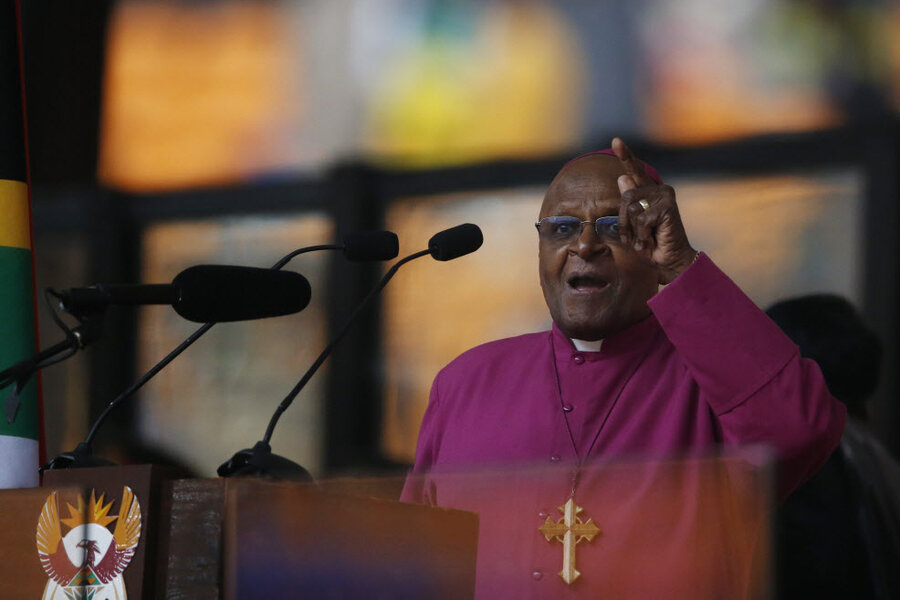Desmond Tutu says he wasn't invited to Mandela's funeral
Loading...
| Johannesburg
Nobel Peace Prize winner retired Archbishop Desmond Tutu, a longtime friend of Nelson Mandela and occasional critic of the current South African government, said Saturday he was not invited to Mandela's funeral and will not attend. Government officials insist he was on the guest list.
"Much as I would have loved to attend the service to say a final farewell to someone I loved and treasured, it would have been disrespectful to Tata (Mandela) to gatecrash what was billed as a private family funeral," Tutu said in a statement released Saturday. "Had I or my office been informed that I would be welcome there is no way on earth that I would have missed it."
He said he had cancelled his plans to fly to the Eastern Cape to attend the Sunday funeral after receiving no indication that his name was on the guest list or accreditation list.
Mac Maharaj, a spokesman for the South African presidency, said Tutu is on the guest list and that he hopes a solution will be found that allows Tutu to attend.
"Certainly he is invited," Maharaj said. "He's an important person."
The issue highlights occasional frictions between Tutu and the current government. Two years ago, Tutu, an anti-apartheid hero often described as South Africa's conscience, slammed the ANC-led government as "disgraceful" and said it was worse than the country's former oppressive white regime for not issuing a visa to the Dalai Lama.
At that time, South African foreign ministry officials denied they stalled on the visa because of pressure from China, a major trading partner. Tutu, who received the Nobel Peace Prize in 1984 for his nonviolent campaign against white racist rule, had invited the Dalai Lama, a fellow Nobel laureate, to South Africa to celebrate Tutu's 80th birthday. The Dalai Lama's office said he was calling off the visit because he didn't expect to get a visa.
Tutu accused the South African government of failing to side with "Tibetans who are being oppressed viciously by the Chinese." He also charged President Jacob Zuma with ignoring the contribution religious leaders made to toppling the white Nationalist Party.
Before April 2009 elections propelled Zuma to the presidency, Tutu had said he was so skeptical of the ANC leader he was considering not casting a ballot. Tutu cited a rape trial in which Zuma was acquitted and corruption charges that were dropped just before the vote.
Tutu worked closely with Mandela during the long struggle against apartheid and served as one of its most visible public figures during the 27 years when Mandela was imprisoned. Tutu was the chairman of the Truth and Reconciliation Commission that was created by Mandela's government to investigate apartheid atrocities and delivered the final report to Mandela in October 1998.
Tutu's daughter, Rev. Mpho Tutu, said in a statement earlier Saturday that her father had not been accredited as a clergyman at Mandela's funeral, to be held in Mandela's home village of Qunu.
Maharaj said no credentials were needed.







